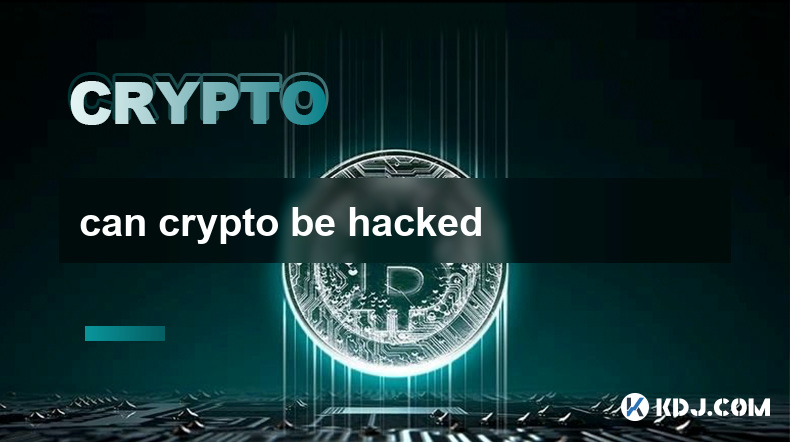-
 Bitcoin
Bitcoin $107,051.0883
1.48% -
 Ethereum
Ethereum $2,503.5427
-0.43% -
 Tether USDt
Tether USDt $1.0002
0.00% -
 XRP
XRP $2.3587
-1.09% -
 BNB
BNB $648.5806
0.02% -
 Solana
Solana $168.6356
1.33% -
 USDC
USDC $1.0000
0.02% -
 Dogecoin
Dogecoin $0.2248
0.28% -
 Cardano
Cardano $0.7400
-0.14% -
 TRON
TRON $0.2710
2.14% -
 Sui
Sui $3.8996
2.84% -
 Chainlink
Chainlink $15.6245
-0.88% -
 Avalanche
Avalanche $22.4256
0.64% -
 Stellar
Stellar $0.2869
0.39% -
 Hyperliquid
Hyperliquid $26.1159
-1.18% -
 Shiba Inu
Shiba Inu $0.0...01445
-0.44% -
 Hedera
Hedera $0.1939
0.97% -
 UNUS SED LEO
UNUS SED LEO $8.7742
0.97% -
 Bitcoin Cash
Bitcoin Cash $391.1144
0.03% -
 Toncoin
Toncoin $3.0674
1.92% -
 Polkadot
Polkadot $4.6440
1.08% -
 Litecoin
Litecoin $93.9273
-5.22% -
 Monero
Monero $347.8915
1.49% -
 Bitget Token
Bitget Token $5.1582
-0.15% -
 Pepe
Pepe $0.0...01315
-0.74% -
 Pi
Pi $0.7544
3.71% -
 Dai
Dai $0.9999
-0.01% -
 Ethena USDe
Ethena USDe $1.0006
0.03% -
 Aave
Aave $258.8149
7.89% -
 Uniswap
Uniswap $5.8905
-1.40%
can crypto be hacked
Cryptocurrencies are vulnerable to hacking, with exchanges, wallets, ICOs, and DeFi protocols being common targets. Understanding hacking methods, implementing security measures, and staying informed are crucial to protect crypto assets.
Feb 01, 2025 at 01:48 pm

Can Crypto Be Hacked? Unraveling the Vulnerabilities and Mitigating Risks
Key Points:
- Understanding the potential hacking targets in the cryptocurrency ecosystem
- Analyzing the common methods and techniques employed by hackers
- Exploring best practices and security measures to safeguard crypto assets
- Examining prominent crypto hacks and lessons learned
- Delving into regulatory frameworks and legal implications of crypto hacking
- Deciphering the role of law enforcement and cybersecurity agencies in combatting crypto-related cybercrime
- Evaluating the future of crypto security amid evolving technologies and regulations
Understanding Hacking Targets in the Crypto Ecosystem
Cryptocurrencies, decentralized digital assets, offer unique advantages such as anonymity, transparency, and secure transactions. However, like any digital system, cryptocurrencies are not immune to hacking attempts. Hackers target various components within the crypto ecosystem, including:
- Cryptocurrency exchanges: Centralized platforms where users trade cryptocurrencies are prime targets due to the vast amounts of digital assets stored on their servers.
- Cryptocurrency wallets: Software or hardware devices used to store and manage cryptocurrencies can be vulnerable to malware, phishing scams, or private key theft.
- Initial Coin Offerings (ICOs): Crowdfunding platforms for new cryptocurrencies often attract malicious actors seeking to exploit vulnerabilities in smart contracts or steal funds raised.
- Decentralized Finance (DeFi) protocols: Complex financial services built on decentralized platforms can be susceptible to smart contract exploits, rug pulls, and liquidity pool manipulation.
Common Crypto Hacking Methods and Techniques
Hackers employ a diverse range of techniques to compromise crypto assets. Some common methods include:
- Phishing attacks: Pretending to be legitimate organizations or individuals to trick victims into providing sensitive information, such as private keys or account credentials.
- Malware: Malicious software that infiltrates computers or mobile devices to steal private keys, track transactions, or gain control of accounts.
- Sim swapping: Hijacking a victim's phone number to intercept SMS authentication codes used for crypto transactions.
- Social engineering attacks: Exploiting human vulnerabilities, such as trust or fear, to gain access to sensitive information or manipulate victims into making risky decisions.
- Zero-day exploits: Exploiting previously unknown vulnerabilities in software or systems to access and manipulate cryptocurrencies.
Best Practices and Security Measures for Crypto Assets
To safeguard crypto assets from hacking, individuals and organizations should implement robust security measures:
- Enable Two-Factor Authentication (2FA): Add an extra layer of security by requiring a second authentication factor, such as a code sent to a mobile device, for all account logins.
- Use Strong Passwords and Avoid Reuse: Create unique and complex passwords for all crypto-related accounts and avoid reusing passwords across multiple platforms.
- Store Crypto Assets in Secure Wallets: Opt for hardware wallets, which provide offline storage, or reputable and secure software wallets that implement strong encryption and security mechanisms.
- Stay Informed and Be Cautious: Keep up-to-date on the latest hacking techniques, security vulnerabilities, and best practices to stay vigilant and identify potential threats.
- Implement Multi-Signature Transactions: Require multiple signatures for high-value transactions to mitigate the risk of unauthorized access.
Prominent Crypto Hacks and Lessons Learned
History has witnessed several high-profile crypto hacks that have resulted in significant losses. These incidents offer valuable lessons for improving security practices:
- The Mt. Gox Hack (2014): This infamous hack compromised 750,000 bitcoins, at the time worth approximately $473 million, from the Mt. Gox cryptocurrency exchange. The hack exposed vulnerabilities in hot wallet storage and highlighted the importance of offline storage and secure infrastructure.
- The Coincheck Hack (2018): The Japanese cryptocurrency exchange Coincheck lost $530 million worth of NEM tokens in a hack that exploited a vulnerability in its hot wallet management system.
- The Poly Network Hack (2021): One of the largest crypto hacks, the Poly Network incident saw hackers steal over $600 million worth of cryptocurrencies from an interoperability protocol. The hack demonstrated the susceptibility of DeFi protocols to smart contract exploits.
Regulatory Frameworks and Legal Implications of Crypto Hacking
Governments and regulatory bodies worldwide are increasingly recognizing the need for a framework to address crypto-related cybercrime and hacking. Regulations vary across jurisdictions, but common elements include:
- Anti-Money Laundering (AML) and Know Your Customer (KYC) requirements: Exchanges and other crypto-related businesses are required to implement AML and KYC procedures to identify and prevent the use of cryptocurrencies for illegal activities.
- Cybersecurity regulations: Specific regulations may mandate cybersecurity measures for crypto exchanges and other entities handling crypto assets.
- Reporting and disclosure obligations: Crypto-related businesses may be required to report hacks or suspicious activities to regulatory authorities.
Role of Law Enforcement and Cybersecurity Agencies
Law enforcement agencies and cybersecurity organizations play a crucial role in combating crypto-related cybercrime. Responsibilities include:
- Investigating crypto hacks and pursuing perpetrators: Identifying and apprehending individuals and groups involved in crypto-related hacking and cybercrime.
- Providing guidance and assistance to victims: Offering support to victims of crypto hacking to help recover lost assets and mitigate legal and financial consequences.
- Collaborating internationally: Partnering with international agencies to combat cross-border crypto-related cybercrime and share information on emerging threats.
Future of Crypto Security Amid Evolving Technologies and Regulations
The crypto security landscape is constantly evolving due to advancements in technologies and regulatory frameworks. Potential future developments include:
- Increased adoption of advanced security technologies: Crypto exchanges and wallet providers are adopting artificial intelligence, machine learning, and biometrics to enhance security measures.
- Development of new cybersecurity techniques: Researchers and security professionals are continuously developing new techniques to detect and prevent crypto hacking.
- Strengthened regulatory frameworks: Governments are likely to introduce more comprehensive regulations to enhance crypto security and protect consumer interests.
FAQs
- Can all cryptocurrencies be hacked?
While all digital systems are potentially vulnerable to hacking, the level of security varies among different cryptocurrencies. Some cryptocurrencies, such as Bitcoin, have a strong security track record due to decentralized network structures and cryptographic protocols. - How can I recover hacked crypto assets?
Recovery options for hacked crypto assets depend on the specific circumstances of the hack. If possible, victims should immediately contact law enforcement and relevant crypto-related businesses to report the incident. Recovery may involve technical forensic analysis, legal action, or collaboration with cybersecurity experts. - What should I do if I suspect a crypto hacking attempt?
If you suspect a crypto hacking attempt, take immediate action by changing passwords, revoking access to suspicious applications, reporting the incident to platforms and law enforcement, and seeking professional cybersecurity assistance if necessary.
Disclaimer:info@kdj.com
The information provided is not trading advice. kdj.com does not assume any responsibility for any investments made based on the information provided in this article. Cryptocurrencies are highly volatile and it is highly recommended that you invest with caution after thorough research!
If you believe that the content used on this website infringes your copyright, please contact us immediately (info@kdj.com) and we will delete it promptly.
- KULR Technology Group Expands Bitcoin Treasury by 9000000 USD, Bringing Total Holdings to 800.3 BTC
- 2025-05-21 03:55:13
- Bitcoin (BTC) Price Prediction: Will BTC Break Its All-Time High This Week?
- 2025-05-21 03:55:13
- SEC Delays Approving Two Major Solana (SOL) Exchange-Traded Funds (ETFs)
- 2025-05-21 03:50:13
- Genesis and its subsidiaries file two lawsuits against parent company Digital Currency Group
- 2025-05-21 03:50:13
- Validation Cloud Launches Mavrik-1 AI Engine on the Hedera Network
- 2025-05-21 03:45:13
- Qubetics Emerges as a Prominent Candidate, Addressing Blockchain Interoperability and Cross-Border Transactions
- 2025-05-21 03:45:13
Related knowledge

What is Ethereum’s Slashing mechanism and how to punish malicious behavior?
Feb 20,2025 at 03:08am
Key PointsOverview of slashingDifferent types of slashing in EthereumIncentives and consequences of slashingIdentifying and reporting slashed validatorsOngoing discussions and potential improvementsEthereum's Slashing Mechanism: Punishing Malicious BehaviorEthereum's slashing mechanism is an essential tool for ensuring network security and punishing mal...

What is the verifier node of Ethereum and how to become a verifier?
Feb 19,2025 at 06:00pm
The Verifier Node of Ethereum: A Comprehensive GuideKey Points:What is a Verifier Node?How to Become a Verifier NodeResponsibilities and Rewards of a Verifier NodeMinimum Requirements for Becoming a Verifier NodePotential Difficulties in Running a Verifier Node1. What is a Verifier Node?A Verifier Node is an independent entity on the Ethereum network th...

What is Ethereum’s staking, and how to participate and earn money?
Feb 19,2025 at 04:37pm
Key Points:Understanding Ethereum's Staking MechanismSteps to Participate in StakingBenefits and Rewards of StakingSecurity and Risk ConsiderationsTechnical Requirements and Hardware OptionsPotential Challenges and Troubleshooting TipsFAQs on Ethereum StakingWhat is Ethereum's Staking?Proof-of-Stake (PoS) is a consensus mechanism used in blockchain netw...

What is Ethereum’s DAO (Decentralized Autonomous Organization) and how does it work?
Feb 20,2025 at 03:12am
Key PointsDefinition and Structure of a DAOGovernance and Decision-Making in DAOsBenefits and Use Cases of DAOsChallenges and Limitations of DAOsWhat is Ethereum's DAO (Decentralized Autonomous Organization) and How Does It Work?Definition and Structure of a DAOA Decentralized Autonomous Organization (DAO) is an innovative governance and management fram...

What is Ethereum's multi-signature wallet and how to improve security?
Feb 20,2025 at 02:18pm
Key Points:Understanding the Concept of a Multi-Signature WalletBenefits and Drawbacks of Multisig WalletsRequirements for Setting Up a Multisig WalletStep-by-Step Guide to Generating a Multisig WalletImplementing Strategies for Enhanced Security1. Understanding the Concept of a Multi-Signature WalletA multi-signature (multisig) wallet in the Ethereum e...

What is Ethereum's oracle and how to provide data for smart contracts?
Feb 21,2025 at 01:30am
Key Points:Understanding the concept of oracles in EthereumExploring different types of oraclesDetailed guide on how to provide data for smart contractsAddressing potential challenges and considerationsWhat is Ethereum's Oracle?Oracles are crucial components in the Ethereum ecosystem, enabling smart contracts to access real-world data and off-chain even...

What is Ethereum’s Slashing mechanism and how to punish malicious behavior?
Feb 20,2025 at 03:08am
Key PointsOverview of slashingDifferent types of slashing in EthereumIncentives and consequences of slashingIdentifying and reporting slashed validatorsOngoing discussions and potential improvementsEthereum's Slashing Mechanism: Punishing Malicious BehaviorEthereum's slashing mechanism is an essential tool for ensuring network security and punishing mal...

What is the verifier node of Ethereum and how to become a verifier?
Feb 19,2025 at 06:00pm
The Verifier Node of Ethereum: A Comprehensive GuideKey Points:What is a Verifier Node?How to Become a Verifier NodeResponsibilities and Rewards of a Verifier NodeMinimum Requirements for Becoming a Verifier NodePotential Difficulties in Running a Verifier Node1. What is a Verifier Node?A Verifier Node is an independent entity on the Ethereum network th...

What is Ethereum’s staking, and how to participate and earn money?
Feb 19,2025 at 04:37pm
Key Points:Understanding Ethereum's Staking MechanismSteps to Participate in StakingBenefits and Rewards of StakingSecurity and Risk ConsiderationsTechnical Requirements and Hardware OptionsPotential Challenges and Troubleshooting TipsFAQs on Ethereum StakingWhat is Ethereum's Staking?Proof-of-Stake (PoS) is a consensus mechanism used in blockchain netw...

What is Ethereum’s DAO (Decentralized Autonomous Organization) and how does it work?
Feb 20,2025 at 03:12am
Key PointsDefinition and Structure of a DAOGovernance and Decision-Making in DAOsBenefits and Use Cases of DAOsChallenges and Limitations of DAOsWhat is Ethereum's DAO (Decentralized Autonomous Organization) and How Does It Work?Definition and Structure of a DAOA Decentralized Autonomous Organization (DAO) is an innovative governance and management fram...

What is Ethereum's multi-signature wallet and how to improve security?
Feb 20,2025 at 02:18pm
Key Points:Understanding the Concept of a Multi-Signature WalletBenefits and Drawbacks of Multisig WalletsRequirements for Setting Up a Multisig WalletStep-by-Step Guide to Generating a Multisig WalletImplementing Strategies for Enhanced Security1. Understanding the Concept of a Multi-Signature WalletA multi-signature (multisig) wallet in the Ethereum e...

What is Ethereum's oracle and how to provide data for smart contracts?
Feb 21,2025 at 01:30am
Key Points:Understanding the concept of oracles in EthereumExploring different types of oraclesDetailed guide on how to provide data for smart contractsAddressing potential challenges and considerationsWhat is Ethereum's Oracle?Oracles are crucial components in the Ethereum ecosystem, enabling smart contracts to access real-world data and off-chain even...
See all articles
























































































